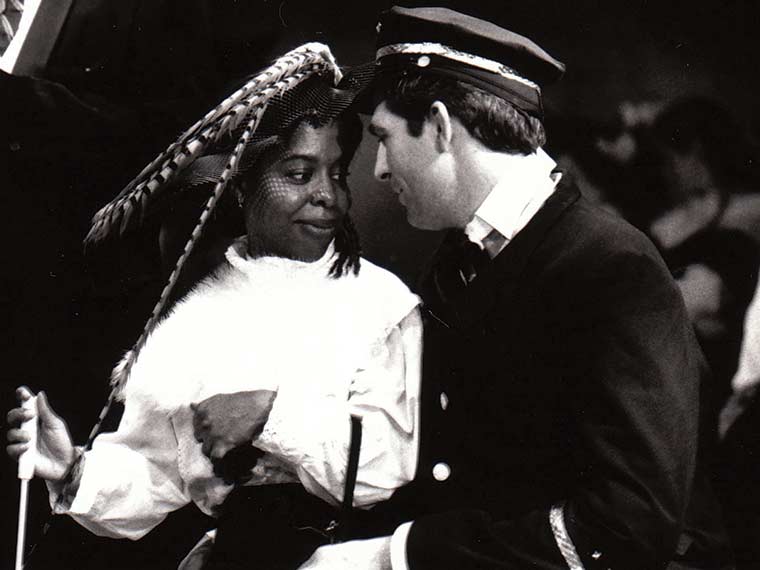Retired Theatre Faculty, 1989–2019
Everyone talks about the stare—the stare that became a rite of passage for students in Cassandra Medley’s playwriting classes.
“She has a way of looking into your eyes that feels like she’s looking into your soul,” observes Myra M. McPhee MFA ’19. Medley will lock onto you, remain uncomfortably silent, and wait you out. “Then you’re like, ‘OK, fine, I’ll tell you my life story,’” explains McPhee, the director of residence life at Sarah Lawrence. “That’s how she gets you.”
Medley’s plays have that same penetrating, unsettling effect. As an African American writer, she’s interested in creating stories, revolving mostly around characters of color, that “personalize the political,” she says. An example is Cell, which was produced by the Ensemble Studio Theatre in New York City in 2011. The one-act play explores the racist, dehumanizing underbelly of America’s warped immigration policies, as revealed through the experiences of three African American women whose own survival hinges on their jobs at a private detention facility.
As in Cell, Medley’s characters often find themselves trapped in a web of amorality not of their own making. Many are drawn from people she’s known in her native Detroit, where she got her start in theatre as a child actor. She draws heavily from the everyday struggles of working-class residents in her hometown. “These are honest, decent, hard-working people who are often caught up in the cycle of self-medicating with alcohol or drugs, while also striving to maintain their religious convictions as a way of coping with the stresses and hardship,” she told Connotation Press in May.
Some writers prefer to shield themselves from the outside world when they work. Not Medley, who has earned numerous honors, including a National Endowment for the Arts Playwright Award. “She’s constantly doing workshops and going to retreats and working with other people,” says Dave McRee MFA ’81, a longtime colleague in the theatre program who has directed several of her works.

The fruits of Medley’s collaborative spirit can be seen in Sarah Lawrence’s playwriting concentration, which she and fellow playwright Stuart Spencer MFA ’10 revamped 15 years ago. Together they replaced a scattered assortment of courses with a more carefully conceived
“pedagogical journey” students can follow, culminating with a performance of their original work. “It’s not, ‘Go be artistic and, if you do well, we’ll do a reading of your play,’” Spencer explains.
Aspiring playwright Dominique McKenzie ’19 credits her don with creating a nurturing environment for young writers whose insecurities Medley empathized with. “It was pretty wonderful having another black woman who could understand where I was coming from without my having to say it,” McKenzie says.
“She has a way of looking into your eyes that feels like she’s looking into your soul. … Then you’re like, ‘OK, fine. I’ll tell you my life story.’” –Myra M. McPhee MFA ’19
Medley’s retirement last May means she won’t be having those what’s-really-on-your-mind conversations with students on a regular basis anymore. McPhee plans to rely on a spiral notepad she’s filled with class notes and Medley’s pearls of wisdom. To cite a few: If you get up in the morning and write one word, you’re a writer. Be kind to yourself when you’re writing. Write from a place that is molten. Flipping through the pages of her notepad, McPhee can feel her emotions welling up, even without Medley’s discerning gaze upon her. “This is making me very sentimental looking through this,” she says.
Written by Shannon Mullen
